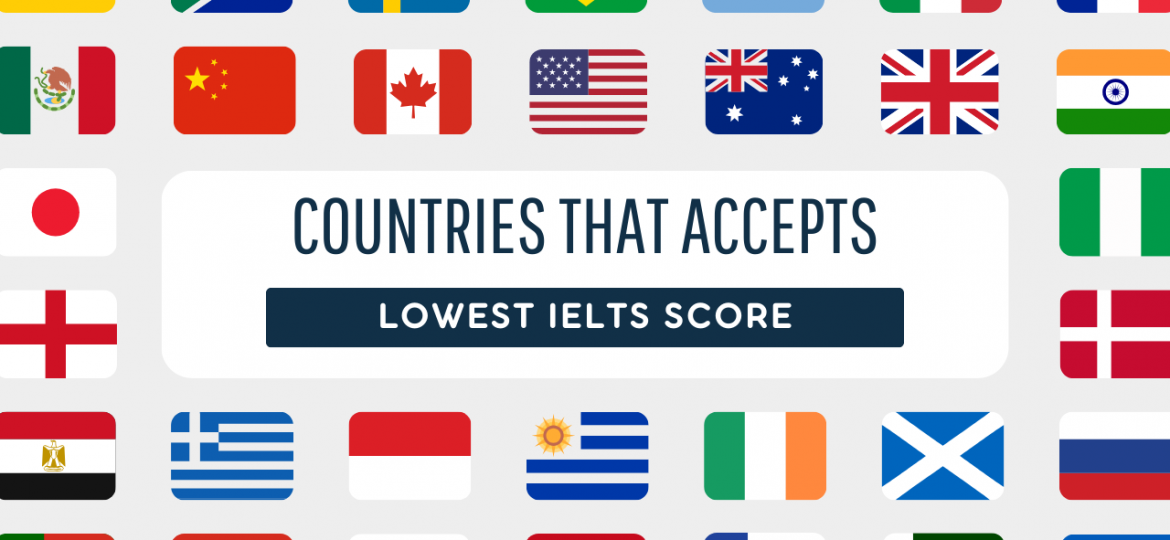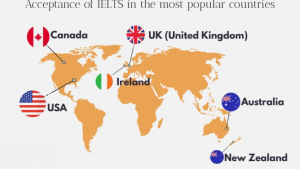
How Countries Set Their IELTS Score Requirements
When it comes to pursuing higher education or emigrating to another country, one significant hurdle for non-native English speakers is achieving the required IELTS score. The International English Language Testing System (IELTS) is a standardized test that assesses one’s English language proficiency. Each country sets its own minimum IELTS score requirements, which can vary widely based on factors such as the level of study, type of visa, and the institution’s preferences.
Understanding the Importance of IELTS Scores
IELTS scores play a crucial role in determining a candidate’s ability to communicate effectively in English. The test evaluates four key language skills: listening, reading, writing, and speaking. These scores provide universities, colleges, and immigration authorities with an objective measure of an applicant’s English proficiency level.
Factors That Influence IELTS Scores
Achieving a high IELTS score requires more than just a good command of the English language. Several factors can impact a candidate’s performance, including:
- Language Proficiency: A strong grasp of grammar, vocabulary, and sentence structure is essential.
- Test Familiarity: Understanding the format of the test and practicing with sample questions can improve scores.
- Time Management: The ability to complete tasks within the allotted time frames is critical.
- Exam Preparation: Engaging in focused study sessions and utilizing reputable study materials can enhance performance.
Which Country Accepts the Lowest IELTS Score?
For those seeking to study or immigrate to an English-speaking country, the IELTS requirement can be a deciding factor. Some countries have relatively low IELTS score requirements compared to others. Here are a few countries that accept lower IELTS scores:
1. Canada
Canada is known for its welcoming attitude towards immigrants and international students. Many Canadian universities and colleges accept IELTS as low as 6.0 for undergraduate programs and 6.5 for postgraduate programs. This lower requirement opens doors for many individuals seeking to study or settle in Canada.
2. Australia
Australia, another popular destination for international students, also has relatively low IELTS requirements. Most Australian universities accept IELTS scores of 6.0 for undergraduate and 6.5 for postgraduate programs. This makes Australia an attractive option for those looking for quality education in an English-speaking country.
3. New Zealand
New Zealand is renowned for its picturesque landscapes and world-class education system. Many universities in New Zealand accept IELTS scores of 6.0 for undergraduate and 6.5 for postgraduate programs. Additionally, the country offers excellent work opportunities for international students post-graduation.
4. United Kingdom
The UK remains a top choice for many international students due to its rich history and renowned universities. While the IELTS requirements vary among institutions, some universities accept scores as low as 5.5 for foundation programs and 6.0 for undergraduate degrees.
Pros and Cons of Studying in Countries with Low IELTS Scores
Advantages
- Accessibility: Lower IELTS requirements make education more accessible to a wider range of students.
- Diverse Culture: Students get the opportunity to immerse themselves in diverse cultural experiences.
- Cost-Effective: Some countries offer affordable tuition fees and living expenses.
Challenges
- Language Barrier: Adapting to a new language and culture can be challenging.
- Quality Concerns: Some students worry about the quality of education in countries with lower IELTS requirements.
- Limited Opportunities: Employment opportunities may be limited for non-native speakers.
Tips to Improve Your IELTS Score
Achieving a higher IELTS score requires dedication and effective study strategies. Here are some tips to help you improve your performance:
- Regular Practice: Engage in daily practice sessions for all four test components.
- Vocabulary Building: Expand your vocabulary by learning new words and their usage.
- Mock Exams: Take regular mock exams to simulate test conditions and improve time management.
- Seek Feedback: Request feedback from teachers or tutors to identify areas for improvement.
Comparison with Other English Proficiency Tests
Aside from IELTS, there are other English proficiency tests such as TOEFL (Test of English as a Foreign Language) and PTE (Pearson Test of English). Each test has its own format and scoring system. Here’s a brief comparison:
- TOEFL: Primarily used in the United States, TOEFL assesses similar language skills but in a different format.
- PTE: Known for its computerized format, PTE provides quick results and is accepted by various institutions worldwide.
Conclusion
In conclusion, the choice of country for studying or immigration greatly depends on individual preferences, career goals, and budget. Countries with lower IELTS score requirements offer attractive opportunities for many individuals seeking to enhance their education and career prospects. By understanding the factors influencing IELTS and utilizing effective study strategies, candidates can improve their chances of success.
Get assistance to study abroad from our international education experts at Gateway International and get free online consultancy for study abroad who can help guide you throughout your study abroad journey & avail our wide range of services for students on destinations like study in UK, study in USA, study in Canada, study in Ireland, study in Australia , study in the Netherlands and many other countries.
FAQs
Do all countries require IELTS for admission?
Not all countries require IELTS for admission. Some institutions may accept alternative English proficiency tests or waive the requirement based on certain criteria.
Can IELTS scores expire?
Yes, IELTS scores are typically valid for two years from the date of the test. After this period, candidates may need to retake the exam to provide updated scores.
Is it possible to get a waiver for IELTS?
Some universities may grant waivers for the IELTS requirement under specific circumstances, such as if the applicant has completed previous education in an English-speaking institution.
Do universities in non-English speaking countries accept IELTS scores?
Yes, many universities in non-English speaking countries recognize and accept IELTS as proof of English proficiency for international students.
How do I register for the IELTS exam?
To register for the IELTS exam, visit the official IELTS website and choose a test date and location that suits you. Complete the registration process online and pay the exam fee.
What if I don’t achieve the required score?
If you do not achieve the required IELTS , consider retaking the exam after further preparation. Review your performance, identify areas of weakness, and seek additional study resources.



